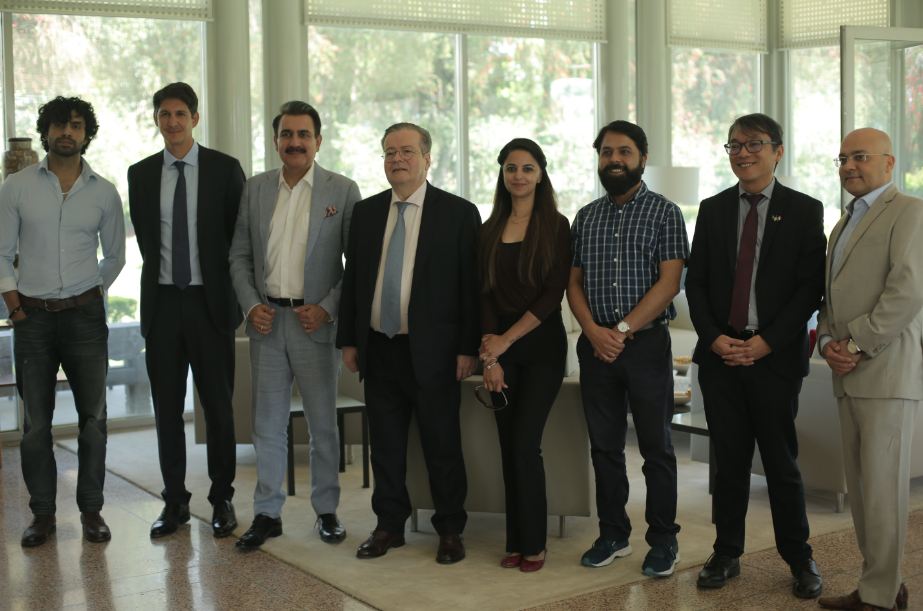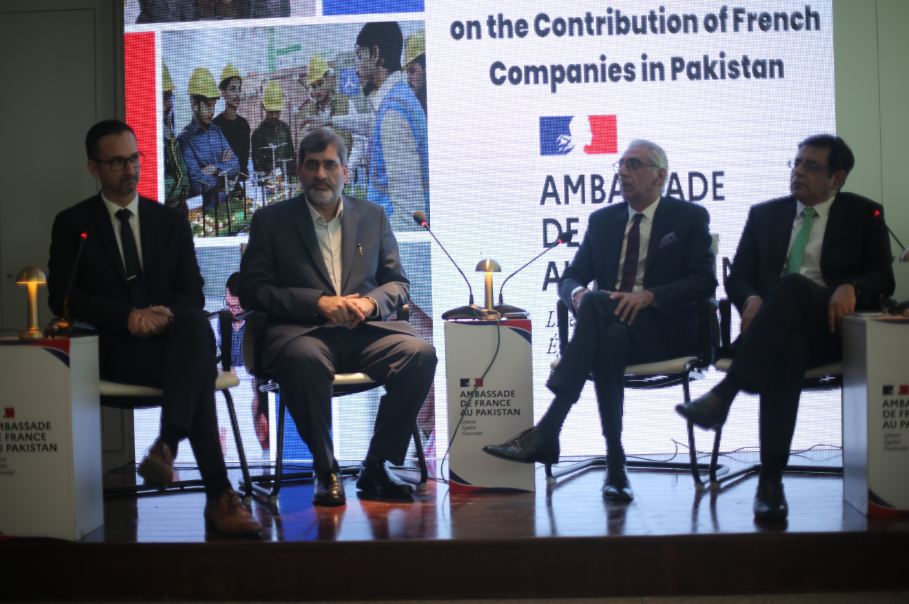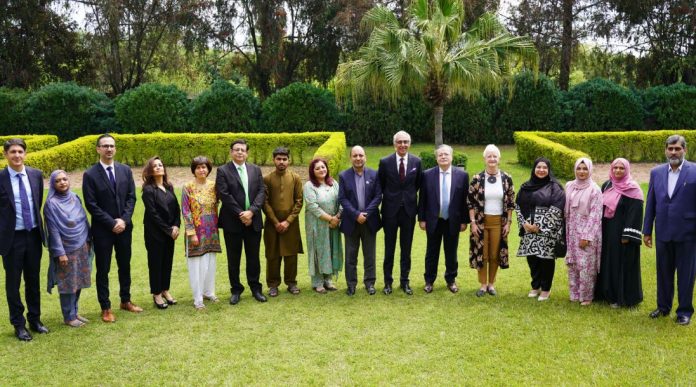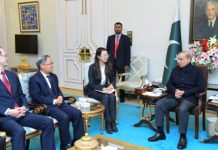We indeed believe that the contribution of the private sector is critical to achieving the U.N. Sustainable Development Goals by creating employment, building skills, giving opportunities and reducing poverty and inequalities: Nicolas Galey
Ansar M Bhatti/DNA
ISLAMABAD: Ambassador of France to Pakistan Niclas Galey has said women’s empowerment and gender equality are priorities of French foreign policy, which includes an ambitious “feminist diplomacy.
‘Today we have a perfect demonstration of this convergence with this series of “inspiring stories” – short videos which highlight the contribution of four French companies to the promotion of women’s empowerment in Pakistan’.
Ambassador of France made these remarks during a ceremony held to honour the contribution of French companies in Pakistan to women empowerment and corporate social responsibility.

A panel discussion was also arranged on the occasion where representatives of the four companies detailed their activities undertaken under their corporate social responsibility initiative.
The ambassador further said,’ We are gathered here to recognize the role of the private sector for causes of general interest, which are often considered to be the responsibility of public institutions. But fortunately, times are changing, and for the better’.
Ambassador Galey said, some companies have been pioneers in this regard and have introduced CSR before the concept was even known. Others became aware of this responsibility following legislations which organized CSR in many countries.
He noted that companies are not philanthropic organizations. But what is important, and which is a very significant development over the last few decades, is that public and private interests and concerns have converged more and more to promote developments and changes that, in certain cases, societies were expecting and, in other situations, which societies find difficult to engage in spontaneously.
While giving the background of the project, he said it was launched by four French companies and the Embassy – namely L’Oréal, Schneider, IPSOS and Servier.
‘We indeed believe that the contribution of the private sector is critical to achieving the U.N. Sustainable Development Goals by creating employment, building skills, giving opportunities and reducing poverty and inequalities, and we are convinced that, in this regard, French investors abroad have duties and responsibilities in their host countries’.

For their activities have both a systemic impact though the promotion of values and standards, but also an impact on individuals – and this exactly what these short videos are about, as you will see in a few minutes, he added.
He said he was very happy and proud that French companies in Pakistan developed good practices in terms of governance, gender equality and human rights, as well as working relations and conditions, environment, and local development.
He mentioned about a legislation adopted in France in 2019 to include consideration of social and environmental issues in the management of French companies. And as far as public and government policies are concerned, all our international development and cooperation projects must now systematically integrate actions related to women’s rights and gender equality, as well as climate change issues.
The ambassador was of the view, the initiative that brought them together was also an opportunity to highlight that the French economic presence in Pakistan – 20 subsidiaries, 1,2 billion Euros of investments – was beneficial not only to the economy of this country but also to its people, and to show that these companies, apart from the business perspectives, actively participate and locally contribute to the development of Pakistan.
‘Also, in some particularly tragic moments, like the floods of summer 2022, French companies demonstrated their solidarity and their involvement in the Pakistani social and economic fabric by helping local communities, directly or through funding of NGOs, some of them represented here ’.
Despite difficult economic conditions for all businesses in Pakistan during the recent years, these NGOs have not given up on this essential part of identity, which is to be more than a business – a responsible actor in the Pakistani society.











